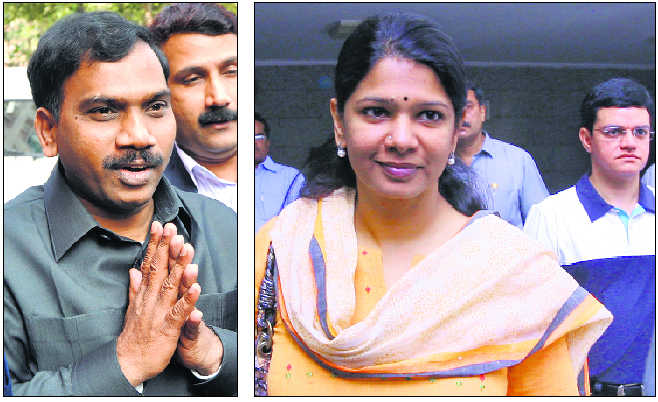Karan Thapar
Senior journalist and TV commentator
Without waiting to see the full judgment, it's clear that the acquittal of all 17 accused in the 2G scam case by the CBI court is a huge embarrassment for the Modi government and, conversely, a belated but ringing vindication of the position taken by the former UPA government and Kapil Sibal, in particular, when the allegations of corruption first surfaced. This is bound to have a serious and lasting impact on Indian politics. Not just on the Congress versus BJP relationship but also on the fortunes of the DMK in Tamil Nadu and its rivalry with the presently ruling AIADMK.
The words of special CBI judge OP Saini are an embarrassment for the CBI, which brought the case, and the Modi government, under whom it has functioned for over three and a half years. "I have absolutely no hesitation in holding that (the) prosecution has miserably failed to prove any charge against any accused," the judge said.
For Mr Modi and the BJP this is damaging at two levels. First, even though the CBI brought the case under the previous UPA government, what people will remember is that most of the prosecution happened under the BJP and now that the CBI has been unable to prove its case that's likely to suggest that its efforts under this government were inadequate and insufficient and, therefore, the BJP has not improved its performance as it repeatedly claims.
Equally importantly, this acquittal removes one of the two key pillars supporting Mr Modi's claim that the UPA was the most corrupt government ever. The other pillar is the coal scam case which could now end with similar acquittals. Indeed, social media is already questioning whether the Modi government won the 2014 election on false accusations of corruption.
The verdict is also a huge embarrassment for the Office of the Comptroller and Auditor-General and, specifically, Vinod Rai, the incumbent when the CAG alleged a presumptive loss of 1.76 lakh crore in the coal scam case. Conversely, the position taken by Kapil Sibal, that there was no loss, seems to have been upheld. The CBI court, it would appear, has accepted the argument, most forcefully put forward by Mr Raja, that he did not intend to make a profit through the sale of spectrum. His intention was to provide a facility, at the cheapest price, so that it was availed off by the largest number. In this context, the concept of presumptive loss is purely an academic calculation which does not provide any proof of corruption.
Hereafter, the claim that the UPA was corrupt is difficult to sustain and that will conclusively be the case if the coal scam case ends with similar acquittals, as some, at least, believe it could. Mr Modi can't recant on what he has already said but this will make further accusations difficult which, in turn, will certainly curb his rhetoric.
However, the CBI verdict could also raise questions about the Supreme Court's decision of 2012 scrapping all 2G allocations made on a first-come-first-serve basis since January 2008. Even though the top court was only looking at the legitimacy and constitutionality of the first-come-first-serve procedure and not whether any criminality was involved, nonetheless the sharp contrast with the CBI verdict may raise questions about the stand the top court took. Two matters, in particular, could attract fresh attention.
First, although the Supreme Court judgment of 2012 explicitly stated it does not "in any manner prejudice the defence of those who are facing prosecution", nonetheless, it found Mr A. Raja guilty of "wholly arbitrary and unconstitutional action". Now that the CBI court has found he is not guilty of any criminality whatsoever where does that verdict on his behaviour stand? Presumably, if you read the two judgments together, it means Mr Raja's behaviour was unconstitutional but not corrupt. He flouted procedures but did not act criminally. But then doesn't a minister have a right to create new procedures and depart from old ones? That's a question that could be legitimately raised today.
Second, in 2012 the SC judgment finding first-come-first-serve to be fundamentally flawed and violative of constitutional principles added "when it comes to alienation of scarce natural resources … the state must always adopt a method of auction." Although that statement was amended by a later Bench, today that injunction could have been rendered even less valid. If a government does not wish to sell resources at a profit, for good and justified social reasons, and there is no criminality involved in the procedure it adopts, it cannot be forced to resort to an auction. The court was wrong to do so. This also means the pride the BJP takes in boasting of its spectrum auctions is now questionable or, at least, less justified.
How it is embarrassing for BJP
- Now that the CBI has been unable to prove its case that's likely to suggest that its efforts under this government were inadequate and, therefore, the BJP has not improved its performance.
- This acquittal removes one of the two key pillars supporting Mr Modi's claim that the UPA was the most corrupt government ever.
- The verdict is also a huge embarrassment for the Office of the CAG as it alleged a presumptive loss of 1.76 lakh crore in the coal scam case.
Unlock Exclusive Insights with The Tribune Premium
Take your experience further with Premium access.
Thought-provoking Opinions, Expert Analysis, In-depth Insights and other Member Only Benefits
Already a Member? Sign In Now










